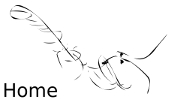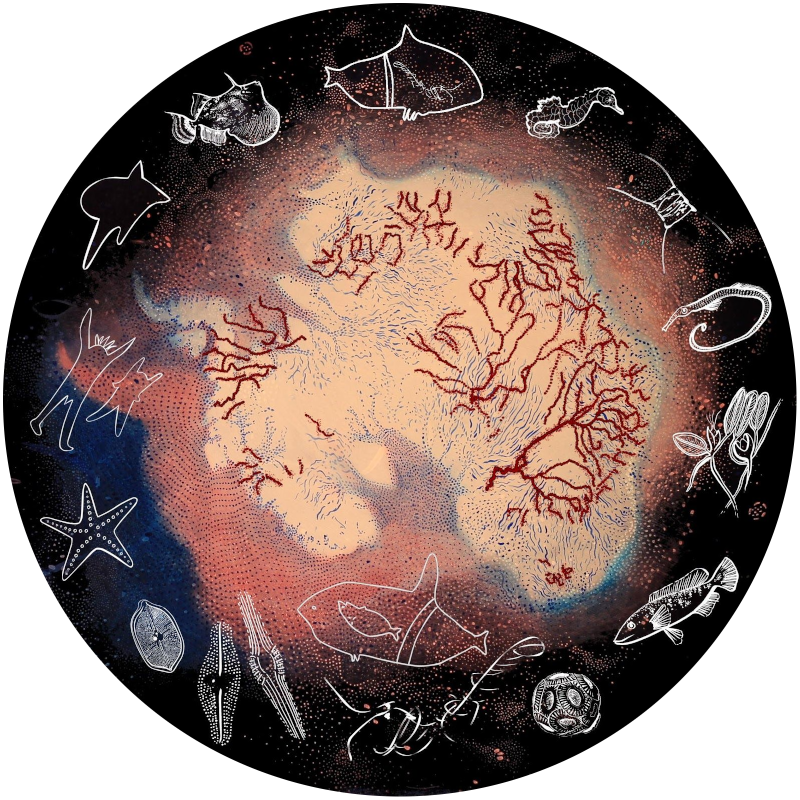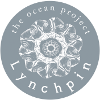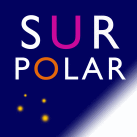Living Data:
Library
2023 Presentations
Disclaimers, Copyrights and Citations
Presentations/Index 2010 2011 2012 2013 2014 2015 2016 2017 2018 2019 2020 2021 2022 2023 2024
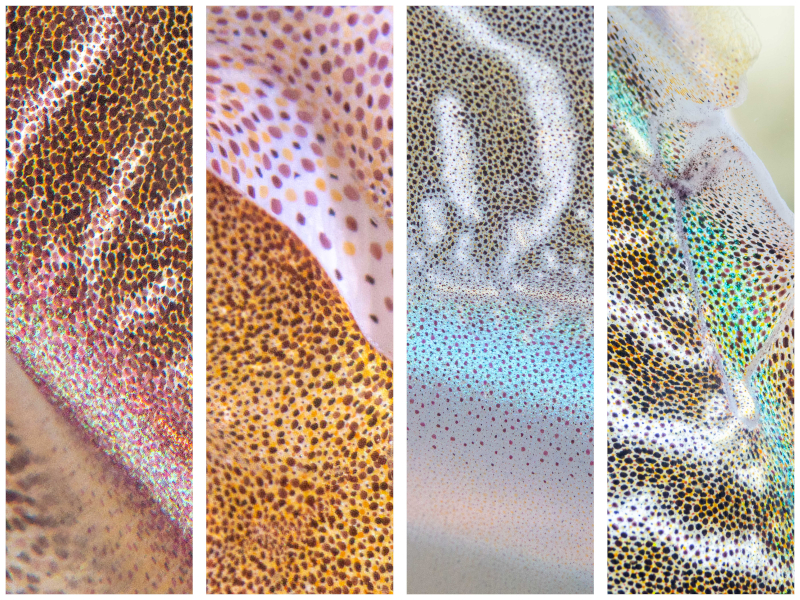
Still from video installation by William Gladstone
Portrait of Community: Vital Relationships
8 June - 14 June 2024
Humans benefit from communities they interact with. Benefits for humans from human communities can be physical, emotional and financial. Humans also benefit from communities of other species from whom they get resources such as food, timber, fibre, medicines, and ecosystem services such as oxygen, water purification, waste dispersal and nutrient recycling.
Other organisms also benefit from communities they interact with, such as coral reefs, schools of fish, swarms of krill, pods of whales. Communities can be multi-species such as an ocean ecosystem - or a rainforest with its myriad of interdependent organisms.
Immerse yourself in a video installation of aquatic music, song, dance, cinamatography and animation.
Experience the rhythm of the sea and the choreography of ocean life forms dancing.
Explore cards with messages held in plankton mesh used by Antarctic scientists to measure ocean health - the same mesh used to measure health of fresh and salt water systems worldwide. The 350 cards signify 350 parts per million (ppm) of C02 in the atmosphere that is considered safe for communities of organisms such as corals, krill and fishes, that we humans depend upon.
We're now at 420 ppm.
Interact with a coral scientist to create an installation that shows how individual polyps work together to grow and sustain a coral community.
Make your own message card at the art table, in response to this new and ancient knowledge
of self-organising, self-sustaining communities upon which humans depend.
Hosted by
Gallery 371
371 Enmore Road, Enmore, Sydney.
Opening 6pm Sat 8 June and continuing daily to Fri 14 June, open 10am to 7pm
The 350 messages will appear online in the winged TV at LunarTime
Fully documented with links to all contributors.
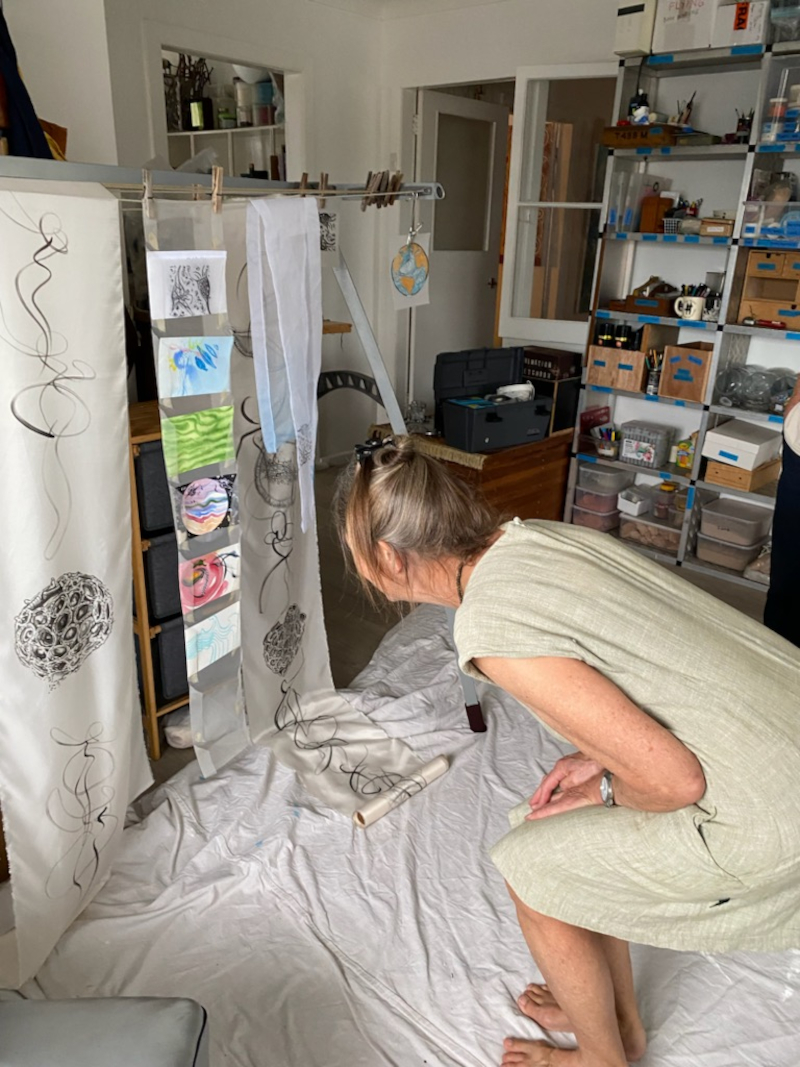
Lisa Roberts planning the plankton mesh installation. Photo: Alison O'Carroll
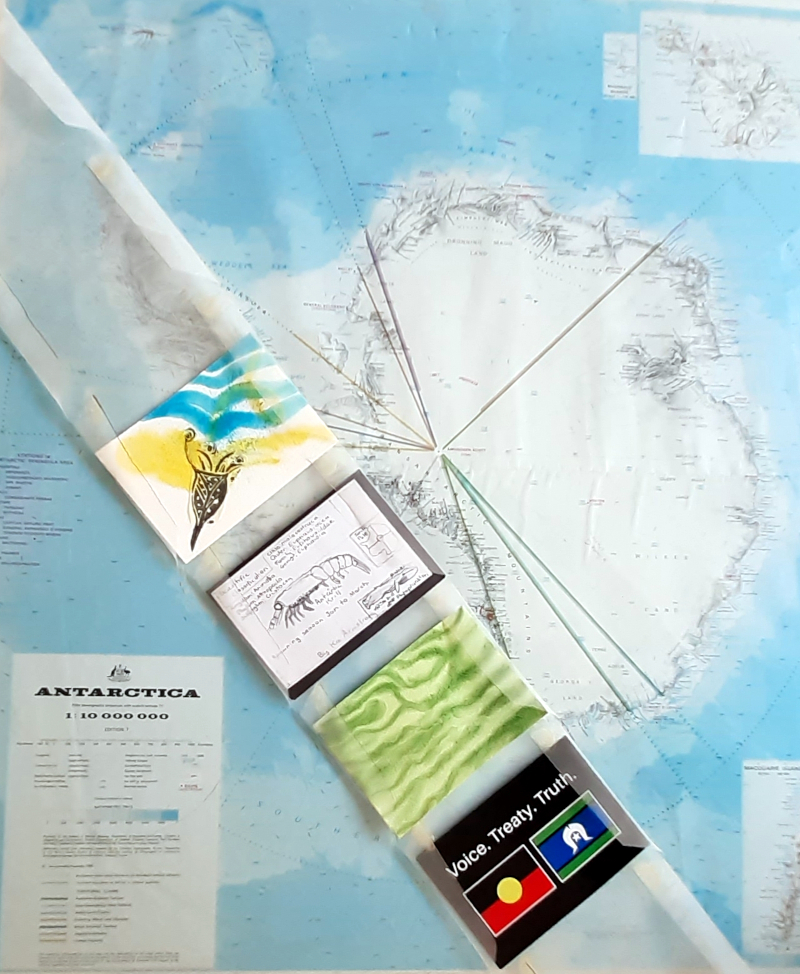
Mesh provided by the Australian Antarctic Division. Message cards collected. Photo: Lisa Roberts
